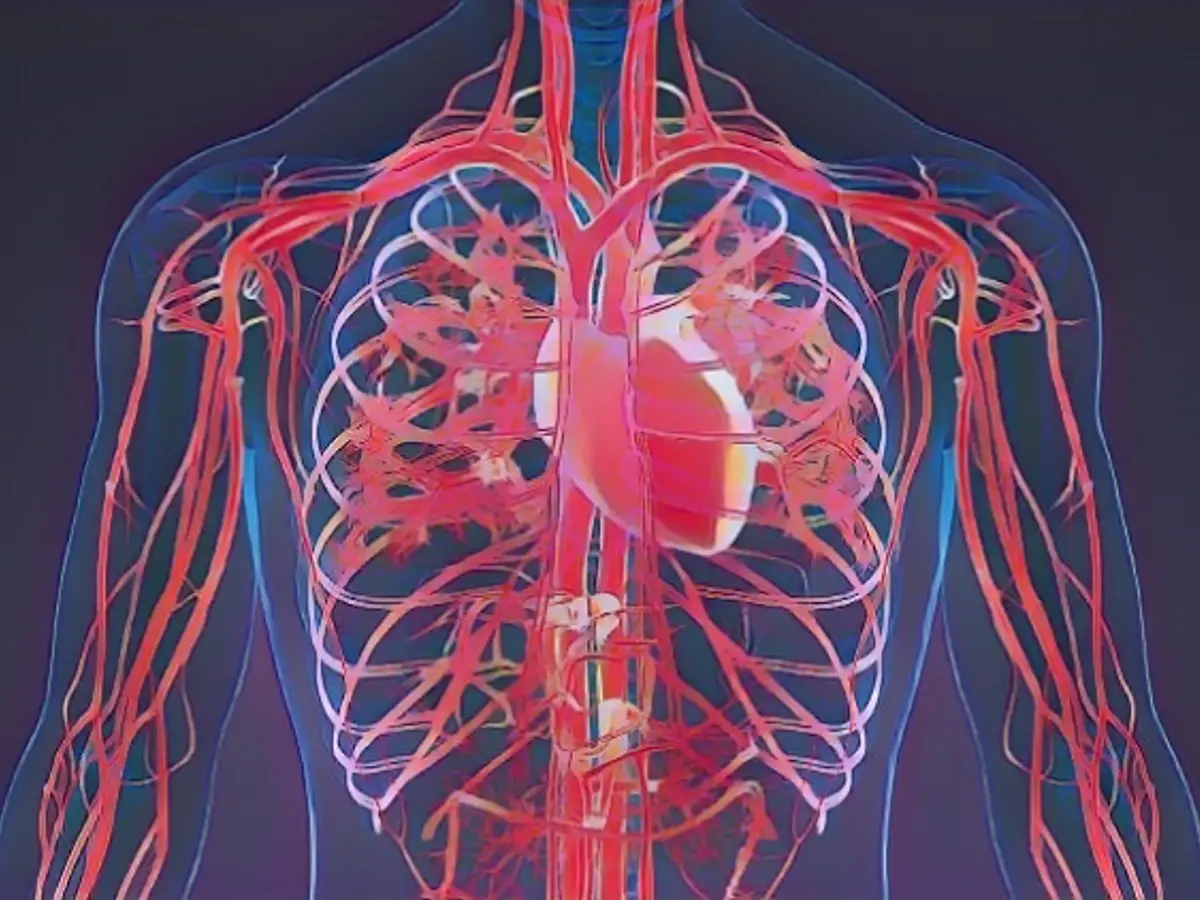AI predicts heart attacks ten years in the future
Millions of people around the world die from heart attacks every year. Many cases could be prevented through better early detection, say British researchers. An AI tool that can look far into the future is now set to take on this task - at least as far as heart health is concerned.
Every year, more than 300,000 people die of a heart attack in Germany alone. And the disease is also one of the most common causes of death worldwide. Artificial intelligence (AI) could prevent thousands of these cases and at the same time improve treatment for almost half of patients, say researchers at Oxford University. They found that an AI can predict up to ten years in the future whether a person is at risk of a heart attack.
For their study, the research team led by Charalambos Antoniades analyzed data from more than 40,000 patients who underwent routine CT scans of the heart in eight British hospitals. It was found that those whose results showed a "significant" narrowing of the arteries were more likely to suffer a serious heart attack. At the same time, however, twice as many patients without significant narrowing also suffered a heart attack, which was sometimes fatal. "According to our research, some patients who came to hospital with chest pain - and were often sent home again - had a high risk of suffering a heart attack in the next ten years - even if there were no signs of disease in their heart arteries," says Antoniades.
The team then developed an AI program that was trained using information about changes in the fat around inflamed arteries that can indicate the risk of a heart attack. The researchers then tested this AI tool on a further 3393 patients over a period of almost eight years.
The result: the technology was able to accurately predict the risk of a heart attack. The risk values generated by the AI were then presented to the doctors for 744 patients. For 45 of the patients, the doctors changed their treatment plans as a result. "We have shown here that providing an accurate picture of risk can change and potentially improve the course of treatment for many heart patients," says Antoniades.
AI should save lives
According to the British Heart Foundation (BHF), which funded the study, around 350,000 people in the UK undergo a CT scan every year. Nevertheless, many patients would later die of a heart attack because small constrictions are not detected. The new AI tool could change this, or so it is hoped.
The study shows "the valuable role that AI-based technology can play" in identifying those most at risk of having a heart attack, said Sir Nilesh Samani, medical director of the BHF. He added: "Too many people die unnecessarily from heart attacks every year. It is vital that we harness the potential of AI to guide and ensure patients are treated." He and study author Antoniades hope the technology will eventually be rolled out across the UK health service, potentially saving the lives of thousands of people.
The findings from the studies in Great Britain have potential implications beyond the country, as researchers believe that this AI tool could save lives worldwide by predicting heart attacks up to ten years in advance. Despite advancements in medical technologies like CT scans, many people still die from undetected heart issues.
This AI tool, developed using data from thousands of patients in British hospitals, could significantly reduce these fatalities by providing doctors with a clearer picture of heart attack risk, potentially leading to improved treatment plans and ultimately, saving lives.
Source: www.ntv.de







